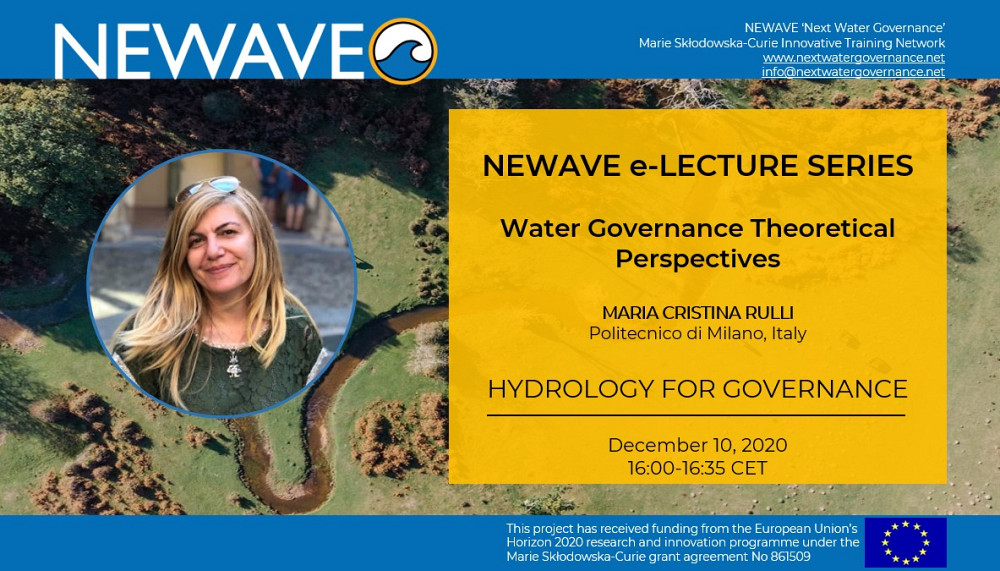NEWAVE e-Lecture Series: [CANCELLED] Hydrology for governance | Prof. Maria Cristina Rulli
Hydrology for governance
References:
Leopold, Luna Bergere. A primer on water. US Government Printing Office, 1960.
Mekonnen, M. M., & Hoekstra, A. Y. (2016). Four billion people facing severe water scarcity. Science advances,2(2), e1500323
D’Odorico, P., Carr, J., Dalin, C., Dell’Angelo, J., Konar, M., Laio, F., Ridolfi, L., Rosa, L., Suweis, S., Tamea, S. and Tuninetti, M. (2019). Global virtual water trade and the hydrological cycle: patterns, drivers, and socio-environmental impacts. Environmental Research Letters, 14(5), p.053001.
Prof. Maria Cristina Rulli
Maria Cristina Rulli is Professor of Hydrology at the Politecnico di Milano, Italy. Her research focuses on the mutual interaction between hydrological processes and humanity. She has investigated the effects of anthropogenic and natural disturbances such as land use change, climate change, forest fires, and new infrastructures on both the hydrological response and sediment yield of a variety of watersheds at different spatial and temporal scales. Recently, she has been investigating the impact of climate change, urbanization, deforestation, land degradation, population growth, changes in food consumption, changes in energy policies on the management of water and other natural resources. Her work has analyzed the effect of environmental externalities, interdependencies and teleconnections on natural resource availability. In particular, she has focused on the emergent phenomenon of Large Scale Land Acquisition (LSLA) and its implication for water, energy and food security. Her work has helped to define and quantify the global phenomenon of “water grabbing” and explored its impacts on water governance, rural livelihoods, and the emergence of water conflicts. She is currently investigating global water and food security and environmental sustainability issues using the Food-Energy-Water Nexus perspective. She is studying the nexus existing between hydrological risk and food security. Specifically, she is analyzing the direct effects of hydrologic extremes (e.g., floods, droughts, landslides, hurricanes, typhoons) on food production and availability and the cascades effects on conflicts and human migrations occurrence. Her most recent research concentrates on the nexus between nutritional security and environmental resources especially water. In particular, focusing on food related diseases she is investigating if the available natural resources are able to meet sustainable diets helping to contrast food based diseases.
About the e-Lecture Series:
This online training module has the objective to engage the NEWAVESRs and the audience in different water governance perspectives. All lectures are open to the public upon registration.
Please register here
A participation certificate can be requested if attending at least 80% of the online public talks.
*All times are in CET (UTC+1)
We would love to know what you think! Please leave a comment below and engage in our online discussion group.




